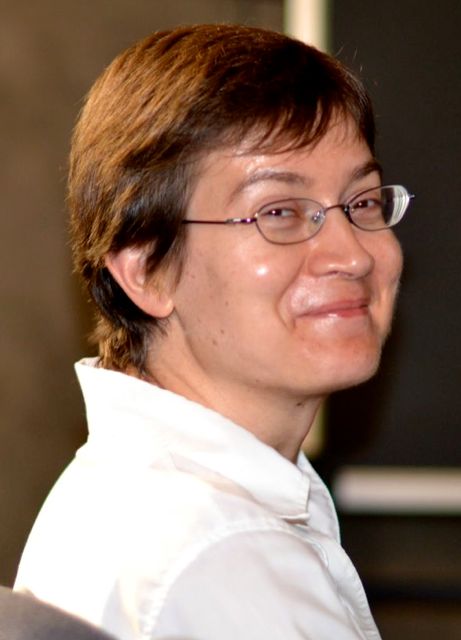Studying at the University of Verona
Here you can find information on the organisational aspects of the Programme, lecture timetables, learning activities and useful contact details for your time at the University, from enrolment to graduation.
Academic calendar
The academic calendar shows the deadlines and scheduled events that are relevant to students, teaching and technical-administrative staff of the University. Public holidays and University closures are also indicated. The academic year normally begins on 1 October each year and ends on 30 September of the following year.
Course calendar
The Academic Calendar sets out the degree programme lecture and exam timetables, as well as the relevant university closure dates..
For the year 2001/2002 No calendar yet available
Exam calendar
Exam dates and rounds are managed by the relevant Science and Engineering Teaching and Student Services Unit.
To view all the exam sessions available, please use the Exam dashboard on ESSE3.
If you forgot your login details or have problems logging in, please contact the relevant IT HelpDesk, or check the login details recovery web page.
Academic staff
Burattini Emilio
 emilio.burattini@univr.it
emilio.burattini@univr.it
 angelo.pica@univr.it
angelo.pica@univr.it
Piccinini Nicola
 piccinini@sci.univr.it
piccinini@sci.univr.it
 +39 349 7461319
+39 349 7461319

Scollo Giuseppe
 giuseppe . scollo at univr . it
giuseppe . scollo at univr . it
 045 802 7940
045 802 7940
Study Plan
The Study Plan includes all modules, teaching and learning activities that each student will need to undertake during their time at the University.
Please select your Study Plan based on your enrollment year.
The Study plan 2001/2002 will be available by April 2nd. While waiting for it to be published, consult the Study plan for the current academic year at the following link.
Legend | Type of training activity (TTA)
TAF (Type of Educational Activity) All courses and activities are classified into different types of educational activities, indicated by a letter.
Expert Systems (2004/2005)
Teaching code
4S00055
Teacher
Credits
5
Also offered in courses:
- Expert Systems of the course Masters in Intelligent and Multimedia Systems
- Expert Systems of the course Bachelor in Computer Science (old system)
Language
Italian
Scientific Disciplinary Sector (SSD)
INF/01 - INFORMATICS
Period
Second four-month term dal Jan 10, 2005 al Mar 11, 2005.
Location
VERONA
Web page
Learning outcomes
Il corso si propone di introdurre alle nozioni di Logica Descrittiva, delle Ontologie Formali e dei Vincoli, con specifica attenzione alle applicazioni di questi temi al Web Semantico ed alle Basi di Dati.
Program
1. Richiami di Logica
1. Logica proposizionale
2. Logica del primo ordine
3. Deduzione nel calcolo proposizionale
4. Deduzione nel calcolo del primo ordine
2. Logiche descrittive
1. Logiche descrittive strutturali (FL-)
2. Logiche descrittive proposizionali
3. Basi di conoscenza
1. Rappresentazione di concetti
2. La relazione ISA
3. Attributi e vincoli
4. Due logiche terminologiche: SHF e SHIQ
1. Concetti
2. Ruoli e attributi
3. Restrizioni
4. Sintassi e semantica di SHF
5. Sintassi e semantica di SHIQ
5. Il sistema FaCT
6. Ontologie formali
1. Top-Level Ontologies
2. Ontologie di Dominio
3. Ontologie Dedicate ad un Compito
7. Vincoli relazionali
1. Vincoli binari numerici
2. Problemi di Elaborazione dei Vincoli
3. Vincoli non numerici
Il corso si sviluppa su 32 ore di lezione frontale e 12 di laboratorio.
| Author | Title | Publishing house | Year | ISBN | Notes |
|---|---|---|---|---|---|
| J. D. Ullman | Principles of Database and Knowledge-base Systems | Computer Science Press | Testo introduttivo alle problematiche di basi di dati e di conoscenza. | ||
| Franz Baader, Diego Calvanese, Deborah McGuinness, Daniele Nardi, Peter Patel-Schneider | The Description Logic Handbook Theory, Implementation and Applications (Edizione 1) | Cambridge University Press | 2003 | 0521781760 | Testo sulle logiche descrittive e sulle ontologie |
Examination Methods
Esame mediante prove parziali:
durante il corso si svolgono due prove:
C: compito in classe di due ore;
P: progetto di programmazione individuale da fare a casa o in laboratorio.
Il voto al primo appello d'esame, che segue la fine del corso, sulla base delle due prove, è dato da:
50% C + 50% P.
Queste prove valgono solo per il primo appello dopo la fine delle lezioni. Dopo tale appello le due prove durante il corso non valgono più nulla. Similmente chi sostiene l'esame regolare al primo appello perde il voto maturato con le due prove.
Esame regolare:
Si basa su una prova scritta che determina il voto d'esame.
Teaching materials e documents
-
 Modalità d'esame
(html, it, 4 KB, 24/02/05)
Modalità d'esame
(html, it, 4 KB, 24/02/05)
-
 Programma del corso
(html, it, 4 KB, 24/02/05)
Programma del corso
(html, it, 4 KB, 24/02/05)
Type D and Type F activities
Training offer to be defined
Career prospects
Module/Programme news
News for students
There you will find information, resources and services useful during your time at the University (Student’s exam record, your study plan on ESSE3, Distance Learning courses, university email account, office forms, administrative procedures, etc.). You can log into MyUnivr with your GIA login details: only in this way will you be able to receive notification of all the notices from your teachers and your secretariat via email and soon also via the Univr app.






















